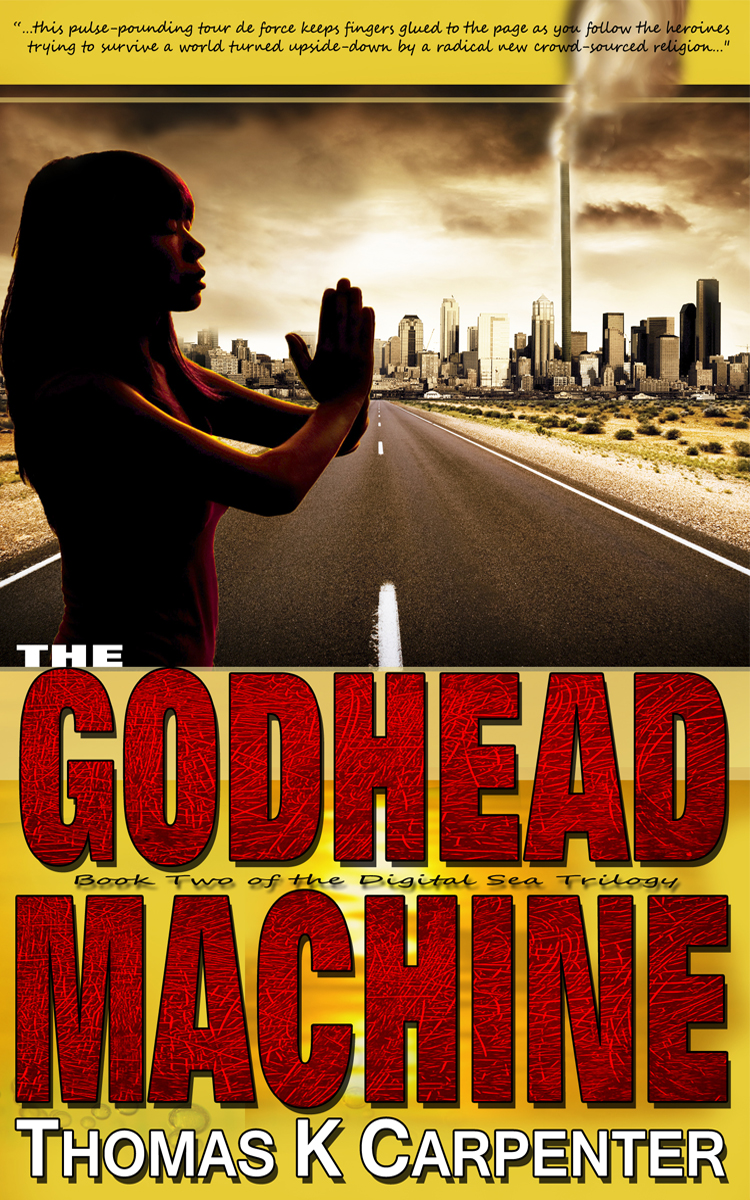 The Godhead Machine is the second novel in Thomas Carpenter's Digital Sea series. In the first novel, we followed Zel Aurora across the planet as she sought the cure for her daughter's illness while evading capture by her former employer, the mysterious Djed.
The Godhead Machine is the second novel in Thomas Carpenter's Digital Sea series. In the first novel, we followed Zel Aurora across the planet as she sought the cure for her daughter's illness while evading capture by her former employer, the mysterious Djed. Two years have passed. Zel's still on the run, though she tries to give her unappreciative adolescent daughter a normal life. An old foe, who she thought was dead, has resurfaced and is hunting her down. Running out of options, she joins the Wiki, but finds that the accompanying reality binder comes with its own perils.
The Wiki is an open source religion. You know about Wikipedia - where everyone can contribute to the building of the encyclopedia. In this case, members are trying to crowdsource their way to create the one true faith to get God's message. Unfortunately, there's too much of a social media aspect inherent to the Wiki that leaves it ripe for abuse and manipulation. When religious leaders are allowed to re-write the rules and twist the message, you're not dealing with spirituality anymore. You're preparing for war.
The other two major characters in the story are Sigh, an orphan girl living on the streets of London, and Nari, a pop megastar whose endorsements build fortunes for corporations and governments. Zel's fate becomes entwined with them. Carpenter keeps us hooked through their predicaments.
While I've read stories where the protagonist was female, I think this is the first novel I've read where all of the major characters were women. Men were relegated to the roles of minor characters and villains, not that he bashes them in a fit of self-loathing. It just so happens that these are three strong, diverse women who are masters of the worlds they inhabit. When forced to deal with adversity outside their domain, their resourcefulness enables them to persevere.
Carpenter's writing has matured. While I enjoyed, The Digital Sea, The Godhead Machine shows a definite improvement. His writing is tighter and more focused. There is no filler here. Action is sparse, but well-utilized. Carpenter would rather have his characters survive by their wits than violence. The dialogue moves the story along at a good pace and is effective at revealing the nature of the characters. Carpenter efficiently weaves the three storylines together, discarding anything that doesn't develop the characters or contribute to the plot.
Carpenter's augmented reality novels are building his reputation as a skilled writer in the new generation of cyberpunk novelists. So before you buy your Google Glasses at the end of the year, be sure to check out his work to see where the future is taking us.
The Godhead Machine is available in various formats through the author's website.
No comments:
Post a Comment